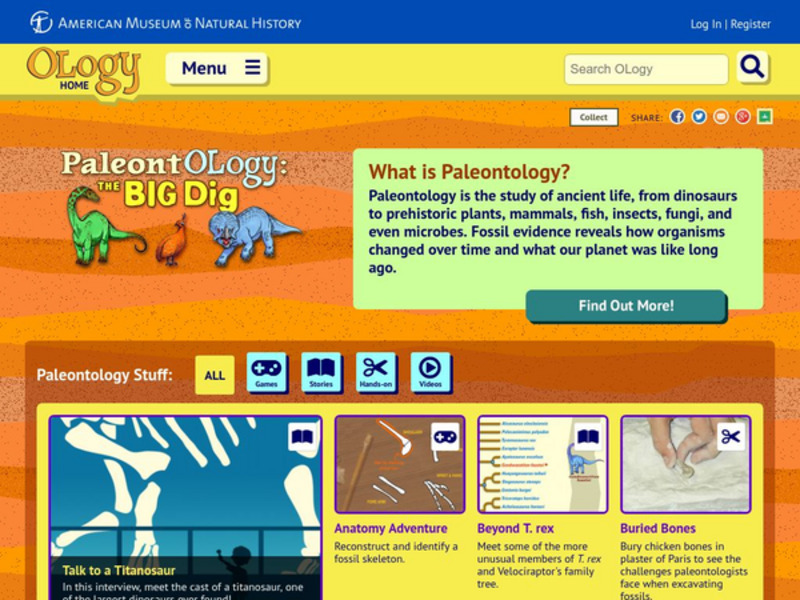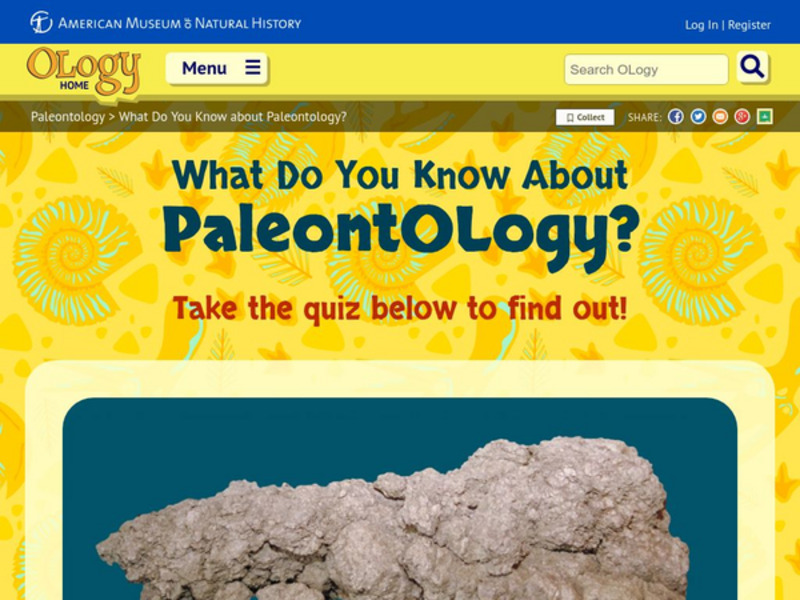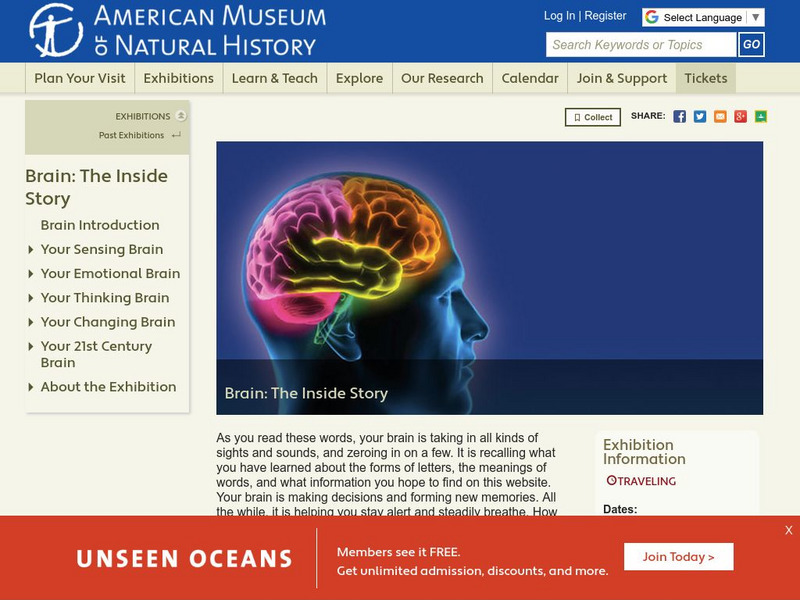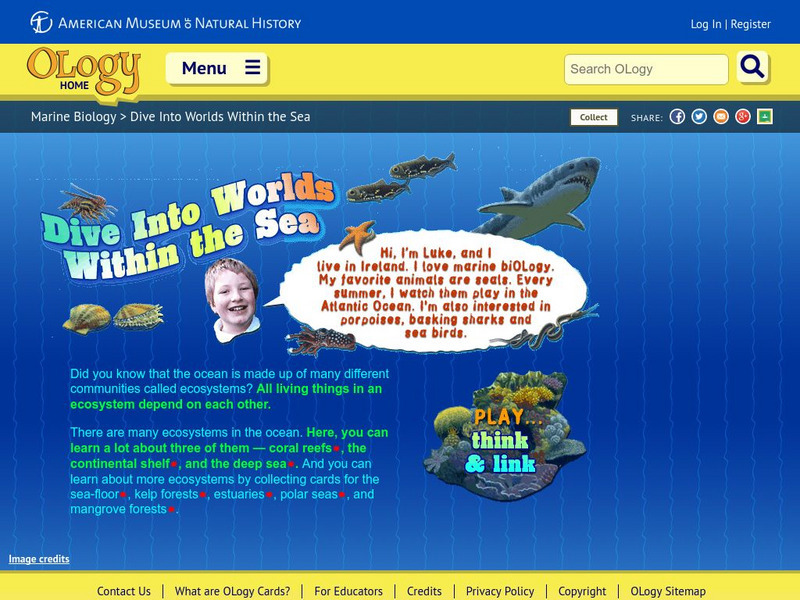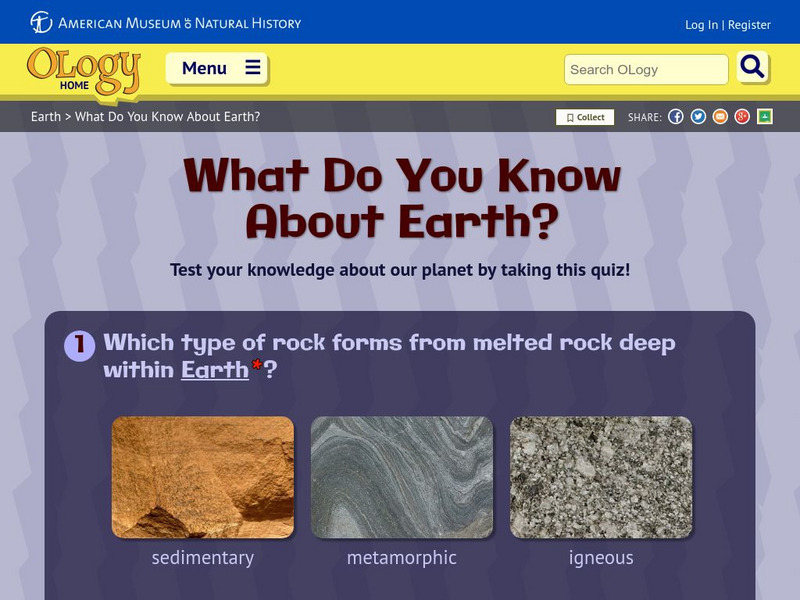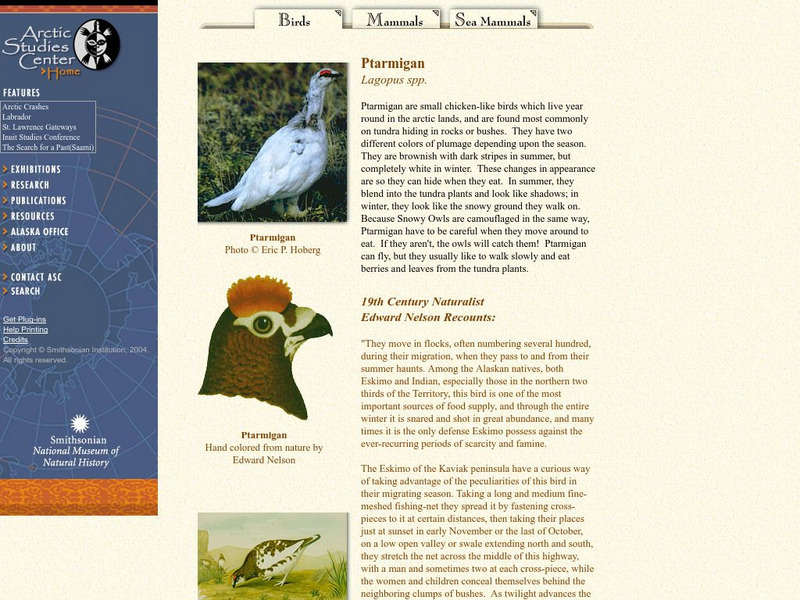Hi, what do you want to do?
Other
Arizona Museum of Natural History: The Hohokam
This informative site from the Arizona Museum of Natural History gives a good look at the Hohokam and their culture. Find a map that shows where these early Southwest people traded, see examples of their pottery and jewelry, and read...
American Museum of Natural History
American Museum of Natural History: Darwin Digital Library of Evolution
This American Museum of Natural History project is a valuable resource for anyone with an interest in studying evolution. They have created a digital library of Darwin's notes, publications, and manuscripts. The information is presented...
Smithsonian Institution
National Museum of Natural History: Department of Mineral Sciences
Useful interface and gateway into the research collections of the Department of Mineral Sciences at the Smithsonian's National Museum of Natural History. Find information, image galleries, exhibits, specimens, and related resources about...
Smithsonian Institution
National Museum of Natural History: Paleobiology: The Burgess Shale
This terrific site from the National Museum of Natural History gives general information about the Burgess Shale and the fossils found within. Use the links to go the Burgess Shale specimens page where there are drawings of many of the...
University of Florida
Florida Museum of Natural History: First Colony: Our Spanish Origins
This resource is a lesson plan from the University of Florida Natural History Museum. It is a lesson on the impact that the immigrants of Jamestown, VA had on American culture and the melting pot they created in the early colonial days.
American Museum of Natural History
American Museum of Natural History: O Logy: Paleontology: The Big Dig
On this site, you will learn all about Paleontology, the study of ancient life. It defines paleontology and provides links to games, stories, videos, and hands-on activities.
Smithsonian Institution
National Museum of Natural History: The Living Yamal
A Smithsonian site that tells of the history and culture of the Yamal people of Siberia.
American Museum of Natural History
American Museum of Natural History: O Logy: Dive Into Worlds Within the Sea
Learn about three different marine ecosystems: coral reefs, the continental shelf, and the deep sea. Interactive game included, which will help players chart the interrelationships among organisms that live in each ecosystem.
American Museum of Natural History
American Museum of Natural History: O Logy: What Do You Know? Dinosaurs
Test knowledge about dinosaurs with this ten question quiz.
American Museum of Natural History
American Museum of Natural History: O Logy: What Do You Know? Climate Change
Test your knowledge on climate change with this short quiz.
American Museum of Natural History
American Museum of Natural History: O Logy: Stuff to Do: Create a Coral Reef
Detailed instructions, with photographs for every step, for how to build a coral reef diorama.
Smithsonian Institution
National Museum of Natural History: Expedition to Galapagos
Accompany scientists on an exciting trip to the Galapagos as they make a film on the islands for IMAX. Featured are a fantastic photo journal and video footage.
American Museum of Natural History
American Museum of Natural History: Oology: Expeditions
This student module includes short, informational text, images, interactive games, and quizzes about ocean exploration.
American Museum of Natural History
American Museum of Natural History: Ology: See the Light
Reflection, refraction, and the colors that make up white light is explored through lab activities after reading a brief background about light energy.
Smithsonian Institution
National Museum of Natural History: Looking Both Ways
This is an interactive exhibit from the Smithsonian Arctic Studies Center featuring the Alaskan Native Alutiiqs. Learn much information about the people, their culture, and see where they live.
American Museum of Natural History
American Museum of Natural History: Find a Vent
Learn all about hydrothermal vents deep in the ocean and how scientists locate them. Then take a virtual expedition to the Juan de Fuca Ridge in the north Pacific and see if you can discover a new deep sea vent.
American Museum of Natural History
American Museum of Natural History: O Logy: Marine Biology: The Living Oceans
This resource is a place for exploring, asking questions, finding information, meeting scientists, and learning about marine ecosystems.
American Museum of Natural History
American Museum of Natural History: Brain: The Inside Story
This exhibition documents how our brains sense, think, process emotions, and grow and change.
American Museum of Natural History
American Museum of Natural History: Dive Into Worlds Within the Sea
Think and Link to investigate three different ecosystem either the deep sea, coral reef or continental shelf. By connecting the dots students make a food chain to see how organisms in each habitat depend on each other.
American Museum of Natural History
American Museum of Natural History: O Logy: What Do You Know? Earth Science
Take a ten question quiz on the Earth's surface.
University of Florida
Florida Museum of Natural History: Shark Basics
You will find the most commonly asked shark questions in this comprehensive site. Topics include shark basics, shark biology, shark conservation, shark attacks, and shark research.
University of Florida
Florida Museum of Natural History: Amphiprion Ocellaris: Clownfish Anemonefish
This comprehensive site provides an in-depth look at the clownfish along with colorful pictures and a helpful map showing where the fish live.
University of Florida
Florida Museum of Natural History: Sphyraena Barracuda: Great Barracuda
Very detailed information about the Great Barracuda. Get the taxonomy, common names, geographical distribution, habitat, features, food habits, reproduction, predators, importance to humans, and more.
Smithsonian Institution
National Museum of Natural History: Ptarmigan
This Smithsonian website has a brief, but thorough, article on the Ptarmigan. It also includes pictures and an extensive quote from 19th Century naturalist Edward Nelson.









